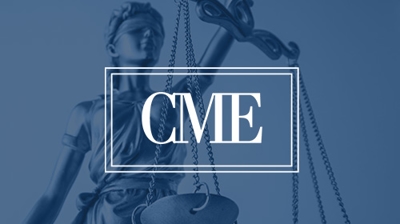
Business Succession Planning Lawyers in Danbury, Southbury, and Westport
Your Actions Today Can Guide the Future of Your Business. Ask Our Team How.
Your business depends on you. If you retire or suddenly become unable to work, the enterprise that you have developed may be in jeopardy. Protecting your business from the sudden—and the eventual—loss of key managers is essential.
Without a succession plan, your business may slip into turmoil during an already challenging time. Fortunately, it is easy to lay out your expectations and guidance for the future. Our attorneys at Chipman Mazzucco Emerson LLC can walk you through the creation of a succession plan and explain each aspect you should include.
Start your business succession plan today by speaking with one of our Fairfield County lawyers. Call us at (203) 902-4882 or email one of our business attorneys.
What Is A Succession Plan, And Why Do I Need One?
No one wants to consider suddenly becoming unable to run a business, but as with estate planning, thinking about your wants and needs ahead of time will pay off in the long run. In its various forms, succession planning may encompass:
- Cultivating the next generation of leaders in your company to take the reins, whether because of your planned—or unplanned—departure.
- Retaining key employees with the “carrot” of benefit packages and the “stick” of non-compete and non-solicitation agreements.
- Developing detailed agreements among business owners to solidify management and financial arrangements, as well as to address the ramifications of death, disability and retirement.
- Using board structures, trusts, powers of attorney and other techniques to minimize the effects of a sudden inability to exercise control.
- Getting your business affairs in order, maximizing the value of your holdings and then smoothly selling your business to a qualified buyer.
- Taking account of family considerations, so that wills, trusts, gifts and other estate planning techniques can help you benefit younger generations.
Who Can Be The Successor in a Business Succession Plan?
Selecting the right successor is a crucial element of a business succession plan. The successor is the individual or group who will take over the leadership and management of the business. Here are some key considerations when choosing a successor:
- Family Members: In family-owned businesses, family members are often preferred successors, but qualifications and interest in the business should be key factors in the decision.
- Key Employees: Experienced and dedicated employees can be great successors, especially when they have in-depth knowledge of the business.
- External Candidates: Consider external candidates with the necessary skills and expertise to lead the company effectively.
- Business Partners: In a partnership, remaining partners may buy out the departing partner's share to continue running the business.
- Succession Committee: Form a committee to objectively assess potential successors based on qualifications, leadership abilities, and alignment with the company's values.
Qualities and Skills to Consider:
Look for qualities and skills such as strong leadership abilities, industry knowledge, adaptability, financial acumen, effective communication, and shared ethical values in potential successors.
Types of Business Succession Plans
Internal Succession vs. External Succession
When planning for succession, business owners must choose between promoting from within the company or hiring from outside.
Internal Succession:
- Benefits: The successor is already familiar with the company culture, processes, and employees. There is often a smoother transition.
- Challenges: There may be limited talent available, and succession can create family or employee conflicts, especially in family-owned businesses.
External Succession:
- Benefits: An external candidate may bring fresh ideas, new skills, and a broader perspective.
- Challenges: It can take time for the new leader to integrate into the company, and existing employees may resist change.
Equity Buyout
An equity buyout is often used in partnerships or closely-held businesses. In this arrangement:
- The departing business owner sells their share to the remaining owners or an outside buyer.
- This helps ensure business continuity and gives the owner an exit strategy.
- The process involves valuing the business, structuring payment terms, and handling potential tax consequences.
Tax Implications of Succession Planning
Estate Taxes and Business Transfers
Transferring a business—whether by inheritance or sale—can trigger significant tax consequences, including:
- Estate Taxes: When a business owner passes away, their estate may be subject to taxes based on the business’s value.
- Tax Minimization Strategies: Owners can reduce estate taxes by gifting business interests or using trusts to transfer ownership over time.
Gift and Estate Planning Strategies
Strategic planning can reduce tax liabilities:
- Gifting Business Interests: Business owners may gift shares of the business to family members, utilizing annual gift exclusions.
- Trusts: Placing business assets in a trust can help manage taxes and ensure assets are distributed according to the owner’s wishes.
Exit Strategies
Selling Your Business
When selling your business, follow these key steps:
- Preparation: Organize financial records, improve business operations, and address potential buyer concerns.
- Identify Buyers: Potential buyers could be employees, competitors, or investors.
- Negotiation: Work with legal and financial advisors to negotiate terms that benefit both parties and ensure a smooth transition.
Merger or Acquisition
Merging with or being acquired by another business is another exit strategy. Considerations include:
- Planning: Evaluate the benefits and risks of merging or selling to a larger company.
- Role of Advisors: Legal and financial experts help structure deals, conduct due diligence, and manage tax implications to ensure the business is valued and sold appropriately.
Experienced Counsel from a Skilled Lawyer
At Chipman Mazzucco Emerson, we assist companies in Fairfield County and the surrounding areas of Connecticut and New York to develop succession plans that are tailored to their unique circumstances. Whether you are planning to retire, sell your business or give it to the next generation, we will provide the experienced and innovative guidance you need.
In your initial meeting, one of our experienced business law attorneys will learn about your goals and explain more about how succession planning may help you. Then, we can guide you through the process, conducting research and drafting contracts as necessary to ensure your goals are carried out.


Meet Our Succession Planning Attorneys
Walking With Our Clients Every Step of the Way
Delivering High-Quality Legal Services
-
Tailored Legal SolutionsWe strive to find the optimal solution for each unique situation. We are well aware of conventional approaches, but we also think outside the box.
-
Highly Competent Legal Guidance
We will analyze your situation thoughtfully and investigate the relevant law thoroughly to devise a creative solution, customized for your situation.
-
Responsive and Accessible
We pride ourselves on responding promptly to every inquiry as we recognize that your time is valuable and that your needs are immediate.
-
Deep Bench of AttorneysAt our firm, our attorneys have over 100 years of combined experience, each able to bring their unique knowledge and skillset to your case.









.2204190953550.jpg)